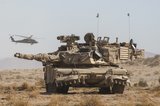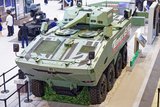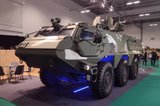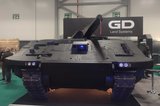K9 gives boost to India-Korea partnerships
Engineering giant Larsen & Toubro (L&T) and South Korea's Hanwha Techwin signed a contract for co-development and co-production of the K9 Vajra-T 155mm self-propelled howitzer for the Indian Army on 21 April. However, this could be just the start of their relationship.
While the K9 'is a programme for a specific relationship , we have a choice to grow beyond the project,' Jayant Patil, head of defence and aerospace at L&T, said.
For example, the two companies could partner for India's soon-to-be-released RfP for air defence systems for the army and air force. They are also looking at partnerships in
Already have an account? Log in
Want to keep reading this article?
More from Land Warfare
-
![World Defense Show 2026: Saudi Arabia’s record defence spend highlights uncertain times]()
World Defense Show 2026: Saudi Arabia’s record defence spend highlights uncertain times
Saudi Arabia’s investment in its land forces, notably in the area of air defence as recently as 30 January, is a sign of the challenges the Gulf State faces, particularly the threat from Houthi rebels in Yemen.
-
![Singapore Airshow 2026: ST Engineering’s Terrex s5 highlights hybrid power’s role in future warfare]()
Singapore Airshow 2026: ST Engineering’s Terrex s5 highlights hybrid power’s role in future warfare
Hybrid-electric drive technology may address the growing energy demands of land warfare in future.
-
![CAVS rides a wave and prepares for surge requirements as orders roll in]()
CAVS rides a wave and prepares for surge requirements as orders roll in
The Common Armoured Vehicle System is continuing to rack up orders as the British Army looks likely to become an operator of the vehicle, while Italy and Ireland are also contenders.
-
![US DoD task force’s DroneHunter acquisition lays groundwork for Replicator 2 CUAS strategy]()
US DoD task force’s DroneHunter acquisition lays groundwork for Replicator 2 CUAS strategy
As the US Department of Defense looks to counter the growing threat of uncrewed aerial systems to improve homeland security, the DroneHunter acquisition could point to future commercial innovation.
-
![Land forces review: Tanks, trucks and IFVs dominate but woes remain for Ajax]()
Land forces review: Tanks, trucks and IFVs dominate but woes remain for Ajax
This year has begun with main battle tanks taking the lead while orders for large logistics and support vehicles continued from last year. Additionally, two of the British Army’s most significant contracted vehicle programmes, Ajax reconnaissance vehicle and Challenger 3 tank, continued to make news in January.























